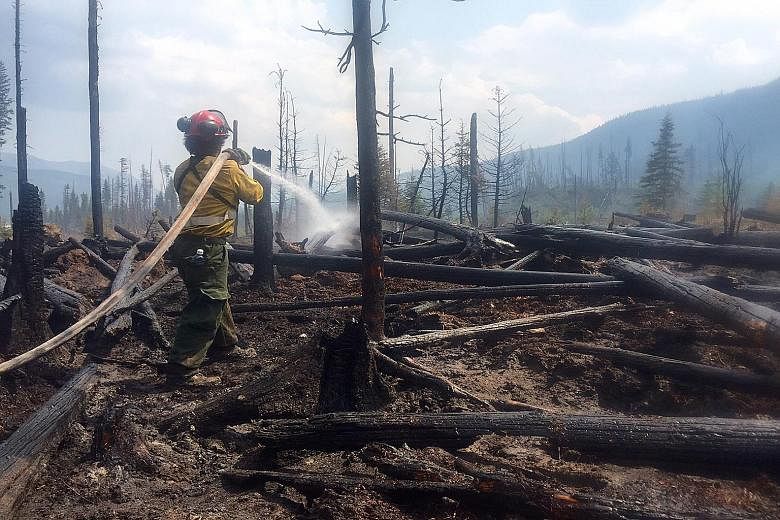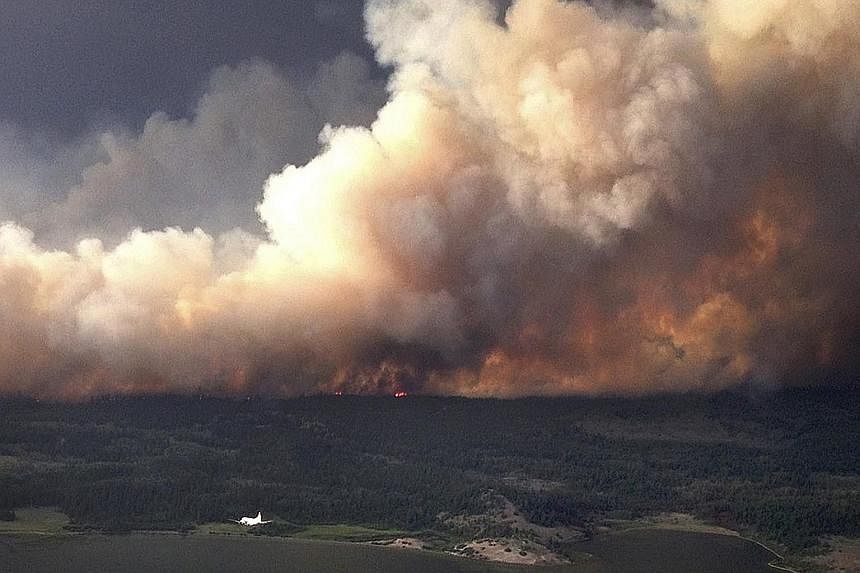PARIS • The wildfire season has lengthened by almost 20 per cent in 35 years globally as the average temperature has risen, a climate change study says.
"Fire weather seasons have lengthened across 29.6 million sq km of the earth's vegetated surface," said a paper in the journal Nature Communications published on Tuesday.
That is about a quarter of the planet's vegetated surface. This resulted in an 18.7 per cent increase in the fire season length overall.
"We have shown that combined surface weather changes over the last 31/2 decades have promoted global wildfire weather season lengthening," said a team of scientists in the United States and Australia - two countries particularly affected by wildfires.
The researchers used climate data and three indices of fire danger to produce an overview of fire season length from 1979 to 2013.
-
350m - hectares of the Earth's vegetated surface burnt each year
-
US$1.7b - US' annual cost of fighting wildfires
-
US$1b - Canada's annual cost of fighting wildfires
Weather is the largest driver of fire risk - temperature, humidity, rainfall and wind speed all influence the frequency and intensity of wildfires.
These factors, in turn, are all affected by a changing climate.
About 350 million hectares are burnt every year, said the report.
Fighting wildfires cost the US about US$1.7 billion (S$2 billion) per year over the past decade, and Canada about US$1 billion.
Total wildfire costs in Australia in 2005 were estimated at US$9.4 billion, or 1.3 per cent of gross domestic product, said the report.
Over the study period, the global land area with "unusually" hot years increased by 6.3 per cent per decade, said the team.
"Fire weather season length and long fire weather season affect areas significantly increased across all vegetated continents except Australia," they reported.
And they warned: "If these trends continue, increased wildfire potential may have pronounced global socio-economic, ecological and climate system impacts."
Dr Grant Wardell-Johnson, director of the Curtin Institute for Biodiversity and Climate at Curtin University in Perth, Australia, said the trends were very concerning for people and nature.
"This research adds to the overwhelming body of knowledge of the increasing costs of doing little about human-caused climate change," he said in comments published by the Australian Science Media Centre yesterday.
He was not part of the team that conducted the study.
In a separate study in the same journal, scientists said that nearly two-thirds of the ocean have experienced an increasing impact from human activities in the five years from 2008 to 2013.
The change, they said, was driven mainly by climate change pressures such as anomalies in sea surface temperature, ocean acidification and ultraviolet radiation - more even than fishing or pollution.
AGENCE FRANCE-PRESSE


